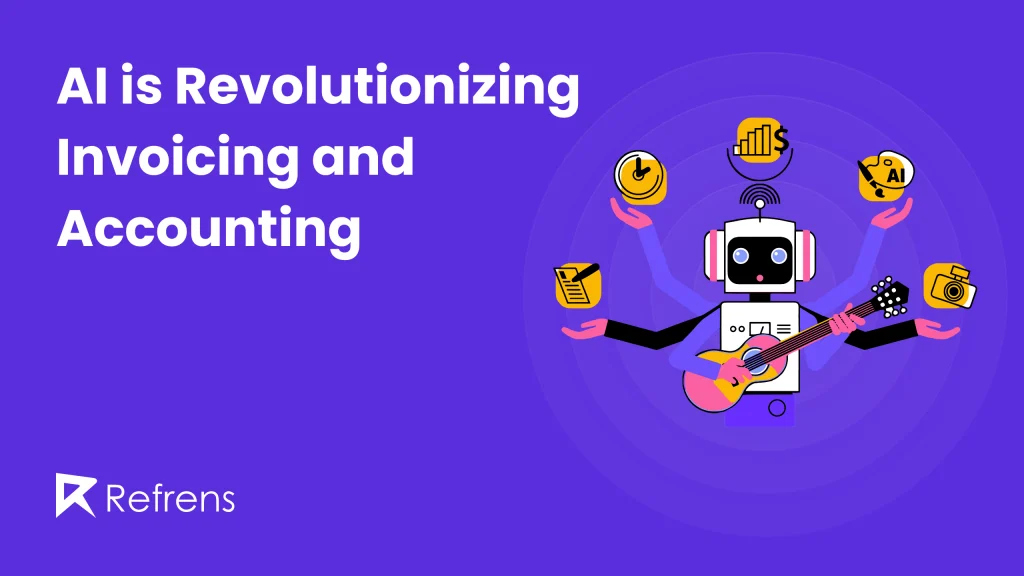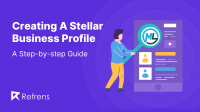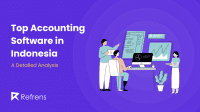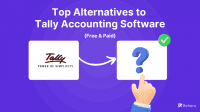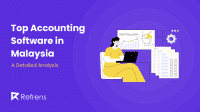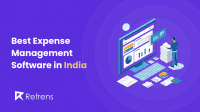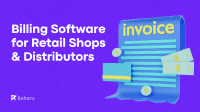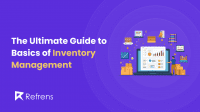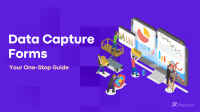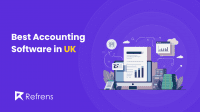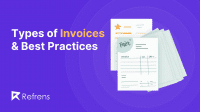If your accountant still uses spreadsheets, fire them.
Okay, maybe don’t fire them just yet, but you should know that AI is already reshaping the accounting industry.
What do we mean?
AI is Stealing Your Accounting Job (And That’s a Good Thing)
Accounting and invoicing have long been tedious, error-prone processes. Chasing unpaid invoices, crunching numbers, and dreading tax season was just part of running a business.
But those days?
Over.
Here are seven things that prove this:
- AI vs. Employment
“AI is not replacing accountants; its goal is to make them more efficient.”
While AI automation is reshaping the industry, it’s not about eliminating accountants but redefining their roles. Instead of getting lost in time-consuming data entry, professionals can leverage advanced tools like AI Text-to-Speech to seamlessly convert financial data into structured reports, transcribe client communications, and enhance workflow efficiency.
The Numbers Behind AI’s Impact on Accounting Jobs
- A PwC study predicts AI will automate 30% of financial sector jobs by 2029.
- IBM’s Watson AI, used in IBM’s finance department, has reduced errors by 30% and saved thousands of work hours annually.
- KPMG’s AI-driven tax tools have cut tax processing times by 25%, ensuring compliance with global regulations.
What this means: Accountants aren’t becoming obsolete; they’re becoming financial strategists.
How AI Reduces Late Payments and Improves Cash Flow
Late payments can cripple a business. AI-driven invoicing systems are solving this problem by automating invoice creation, sending smart reminders, and even predicting which clients are likely to pay late.
What’s AI’s Role Here:
- Smart reminders: Algorithm and machine learning-based follow-ups are centred around customer payment habits.
- Risk detection: AI predicts high-risk clients and flags them.
- Automated prioritization: AI ensures invoices from high-value clients are handled efficiently.
- AI-Driven Financial Forecasting: Predicting Trends with Accuracy
Traditional financial forecasting often involves guesswork. AI eliminates uncertainty by analyzing vast amounts of historical data to predict future cash flow, flag risky transactions, and identify profit opportunities.
Case Studies on AI in Financial Forecasting
- Siemens AG improved its predictive maintenance by using AI-driven analytics.
- JP Morgan Chase employs AI to detect anomalies in transaction data, reducing financial risks before they escalate.
Why This Matters
- AI reduces forecasting errors by 15-25% compared to traditional models.
- Companies using AI for financial predictions see an average revenue increase of 5-10% due to more intelligent decision-making. AI-powered financial data analysis tools help businesses extract insights from complex financial reports, improving strategic planning.
- Automating Complexity: AI in Taxation and Compliance
Look, we all know Tax regulations are constantly changing; this reality makes compliance nothing short of a challenge. AI simplifies this by:
- Automatically updating tax codes.
- Organizing financial records for audits.
- Identifying tax deductions that might be overlooked.
How AI is Transforming Tax Compliance
- TurboTax AI has reduced tax filing errors by 30%.
- H&R Block, in partnership with IBM Watson, maximizes deductions and ensures compliance using AI-driven tax analysis.
The bottom line? AI is making tax season less of a nightmare.
- Fighting Financial Crimes: AI in Fraud Detection
Financial fraud costs businesses billions each year. AI is stepping up and analyzing transaction patterns in real time to detect and prevent fraudulent activities.
AI-Powered Fraud Detection in Action
- Danske Bank used to deal with 1,200 false fraud alerts per day. After implementing AI, false positives dropped by 60%, while fraud detection improved significantly.
- PayPal’s AI-driven fraud detection boasts a 95% accuracy rate.
- Mastercard reduced fraud losses by 50% in certain regions after adopting AI security features.
- Enhancing Accuracy and Compliance in Auditing
Audits used to be time-consuming and labour-intensive, but thanks to AI-powered tools, this is changing.
AI in Action: Faster, More Accurate Audits
- Ernst & Young (EY) uses AI to analyze lease documents, improving compliance with lease accounting standards.
- PwC’s AI-based audit system processes financial statements 75% faster than traditional methods.
AI-driven audits are more accurate, faster, and far less painful than traditional ones.
- Small Business Finance Solutions: AI leveling the playing field
While large corporations have the resources to implement large financial systems or outsource to top finance firms, small businesses have to do DIY. This leads to long hours and somewhat inaccurate accounting.
Thankfully, AI-powered accounting software have leveled the playing fields. These SME-centered tools streamline accounting processes for SMEs, giving them the sort of benefits larger companies have enjoyed for generations.
Case Study
- Refrens.com: A finance and accounting AI tool available to all businesses, regardless of size. It streamlines invoicing, accounting, sales, inventory, expenses, compliance, and other business processes.
What This Means:
No More Monopoly! These tools are no longer just for big tech and large business outfits. Anyone in the game can (and should) start using them, too.
Adopting AI in Accounting (A Step-by-Step Guide)
Integrating AI into daily accounting operations requires a very structured approach to ensure seamless adoption, maximize efficiency, and minimize disruptions.
Here’s how to do so:
Step 1: Reevaluate Your Current Accounting Process
As a rule, ensure your business has evaluated existing accounting workflows to find where automation can bring the most “bang for your buck.”
Key Actions:
- Conduct a workflow audit to map out all accounting processes, including data entry, reconciliations, reporting, tax filing, and invoice management.
- Identify pain points, such as manual errors, delays, or inefficiencies, that AI can resolve.
- Prioritize high-volume, repetitive, and time-consuming tasks.
Example:
A mid-sized firm struggling with slow monthly financial closings could benefit from AI-powered financial close automation tools, which automate reconciliations and variance analysis.
Step 2: Handpick the Right AI Accounting Tools
There’s hardly a wrong choice, but ensure your team has tools that align with your needs, as this is a must for successful adoption.
As a business, you should focus on factors like compatibility, ease of use, and return on investment (ROI).
Key Considerations When Choosing AI Tools:
- Integration: Ensure your choice of tools can seamlessly integrate with existing software.
- Scalability: Choose tools that can grow as you grow.
- Security & Compliance: Don’t ignore the rules; your tool of choice must comply with best practices for financial security.
- User Experience: Opt for AI tools with intuitive interfaces that require minimal training.
- Support & Updates: Look out for ongoing support, new software updates and more to stay ahead.
Step 3: Pilot Test AI with a Small-Scale Implementation
Rather than overhauling your entire accounting system overnight, it’s best to start with a small-scale AI implementation.
Key Actions:
- Select one accounting process (e.g., invoice processing) to automate first.
- Run the AI tool in parallel with manual processes to compare efficiency and accuracy.
- Gather feedback from the accounting team on usability and performance.
- Identify any challenges or adjustments needed before a full rollout.
Example:
A retail business struggling with late payments could start by using Refrens to automate invoice processing and approval workflows before expanding AI to other areas like expense tracking.
Step 4: Train Your Accounting Team on AI Integration
Your business is only as strong as the people who make it up. Ensure that accountants and finance professionals are well-trained in using technology.
Key Training Strategies:
- Conduct workshops and webinars with AI vendors to educate employees on how to use the new tools effectively.
- Create a knowledge hub with video tutorials, FAQs, and troubleshooting guides.
- Assign AI champions within the team who can assist colleagues with onboarding.
- Encourage a growth mindset by highlighting how AI enhances, rather than replaces, accounting jobs.
Example:
A large accounting firm can train employees to use a tool and demonstrate how it automates reconciliations, reduces errors, and allows accountants to focus on strategic financial planning.
Step 5: Monitor AI Performance and Optimize
At first, AI tools require diligent monitoring and optimization to ensure delivery of the expected benefits.
Key Metrics to Track:
- Time Savings: Cutting time resources spent on manual tasks.
- Error Reduction: Compare error rates before and after AI implementation.
- Cost Efficiency: Track savings from reduced manual labour and improved accuracy.
- Employee Feedback: Assess how AI is affecting job satisfaction and efficiency.
Optimization Strategies:
- Regularly update AI tools to incorporate the latest advancements.
- Adjust workflows based on performance insights.
- Expand AI usage to additional accounting processes as confidence grows.
The Future of AI in Accounting: What’s Next?
AI is just getting started in accounting. Here’s what’s coming:
- AI-powered real-time accounting: No more delays, financial reports will be instant.
- Wider AI adoption in small businesses: More SMEs will integrate AI into their accounting systems.
- AI-generated financial strategies: We’ll see Virtual CFOs and AI-driven investment planning becoming mainstream.
- Blockchain + AI integration: Enhanced protection as well as transparency.
Startup Platforms Leading the AI Accounting Trend
Established firms like IBM and PwC aren’t the only drivers of the AI revolution in accounting. Thanks to a select group of startups, we’re seeing the resolution of real-world financial challenges.
These range from automating bookkeeping to enhancing fraud detection and improving compliance.
Below, we highlight the most promising AI startups revolutionizing accounting, how they are doing it, and why they matter.
To Conclude: Is AI the Future of Accounting?
The answer is yes—but not in the way most people think. AI is not replacing accountants, but it’s making them exponentially more valuable.
If your accountant still relies on spreadsheets, it might be time for an upgrade.
